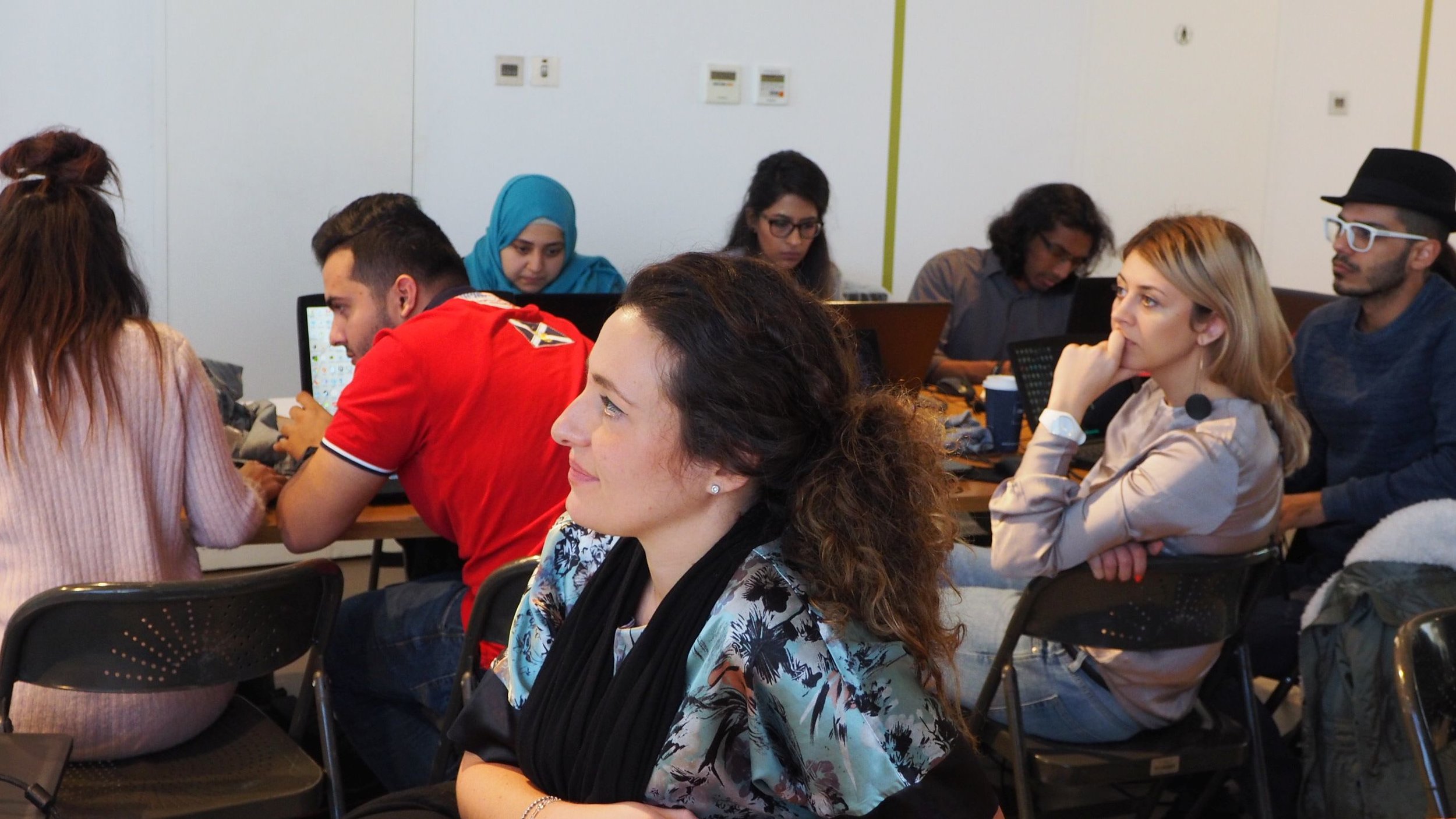behavioral topologies
Dubai, Jan 17-20, 2018
abstract
Generative design processes are constantly evolving and contributing to new innovative design workflows. The new digital techniques, combined with human sensibility and manual (analogue) techniques, are opening new grounds of design exploration that are directed towards seamless integration of form, material, and the applied forces. This integrated process entails a shift from traditional form-finding techniques to processes of a generative and performative nature. As a result, different Behavioral Topologies are evolving, reflecting a synthesis of form, material, and performance.
Introduction
Behavioral Topologies investigates the relationship between topology and form-finding strategies. Participants will be working on their own selected projects, using techniques presented in the workshop. Workshop exercises will use Polygonal Modeling in combination with Particle Systems, Structural Analysis, Topology Optimization, Evolutionary Solvers and Vectorial Fields to design forms of different scale and complexity. The proposed workflow will combine the use of Maya, Rhino, and Grasshopper with some plug-ins such as Kangaroo, Millipede, Weaverbird, and others. During the workshop, participants will be introduced to polygonal modeling in Maya, visual programming in grasshopper, and will learn how to prepare their final model for 3D Printing.
METHODOLOGY
Participants will learn to generate their form with polygonal modeling technique in Maya. This form will be taken into Rhino/ Grasshopper environment where it will be used to analyze and to develop their design using Kangaroo and Millipede plug-ins for structural analysis and topological optimization, and towards producing the final model for 3d printing. The workflow will be demonstrated through exercises that deal with different design challenges, interrogating the aesthetic potential of Topological Optimization. Each topic will be presented with both theoretical introduction and practical application. In the afternoon of the third day, participants will split into groups to develop their own projects, with direct supervision by the tutors, and towards their last day evening presentation.
// Daily schedule
Day 1 – STARTING WITH MAYA
- Maya Interface
- Organize and navigate the scene
- NURBS and polygon meshes, Polygonal modeling
- Sculpting meshesShaders and visualization strategies
- Maya Grasshopper data exchange
// Day 2 – MOVING INTO GRASSHOPPER
- Data management in Grasshopper
- Particle-Spring systems in Kangaroo
- Structural analysis in Millipede
- Topological optimization in Millipede
- Evolutionary solvers and optimization
- Vectorial Fields
// Day 3 – PROJECTS DEVELOPMENT
- Design project assignment
- Introduction to 3D printing
- Project development through design iterations with Groups review
// Day 4 – Projects Development and Presentations
Design finalization, 3D printing output, Projects presentations and Crit.
// Software & skills:
Basic modeling skill in Rhino, and beginners to intermediate level in Grasshopper are required. No Maya skills required. Participants should bring their own laptop with pre-installed software (software download links will be given after subscription).
// Pre-requisite skills:
Participants with no grasshopper skills and wish to participate in this workshop need to register in the Beginners' crash course.
// Tutors:
Mattia Santi - Senior Architect at ZAHA HADID ARCHITECTS
Francesca Silvi - Architect at ZAHA HADID ARCHITECTS
Zayad Motlib - Architect at AmorphouStudio
// Venue:
The workshop will be held at:
1971 Design Space, Sharjah
http://1971design.ae
// Calendar & Timetable:
The workshop will have the following timetable:
Jan 17- 9:30 -19:00 lesson + tutoring
Jan 18- 9:30 -19:00 lesson + tutoring
Jan 19- 9:30 -19:00 lesson + tutoring, Projects development
Jan 20- 9:30 -19:00 Projects development, Presentation and Crit + Certificate ceremony
// Subscription fees:
*Full time students, researchers & PhD (proof of status required).
Group registration: 10% discount will be offered to a group of 2 people if they register and pay one lump sum fee.
The deadline for registration is 13 Jan, 2018 The workshop will be activated with a minimum number of 12 participants, and have a max of 18 seats.
// registration:
To register please e-mail: contact@d-nat.net
// Organized by:
This workshop is organized as a collaboration between d-NAT and DateAidedDesign .
// Pre-requisite skills:
Participants with no grasshopper skills and wish to participate in this workshop we need to register in the Beginners' crash course.














